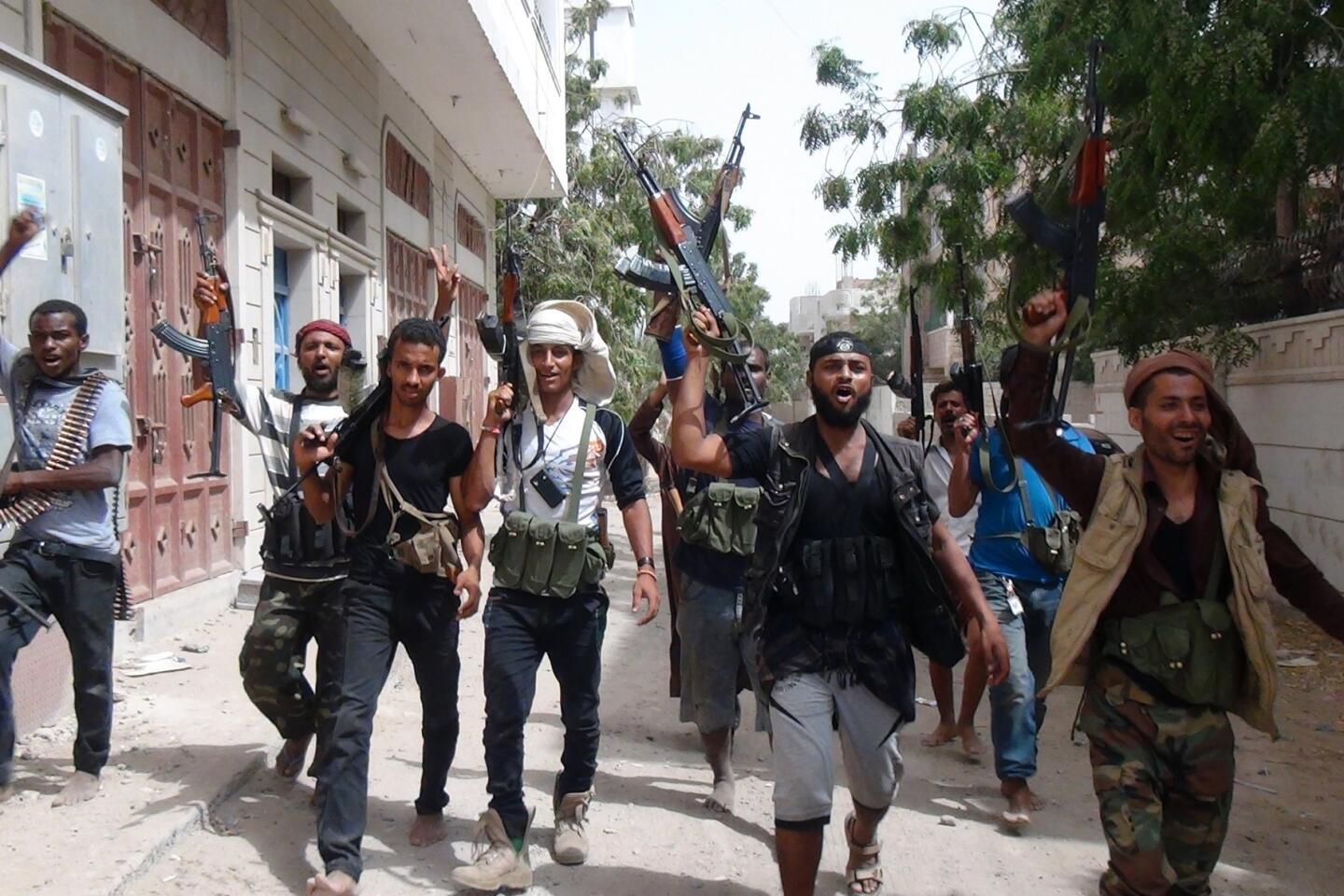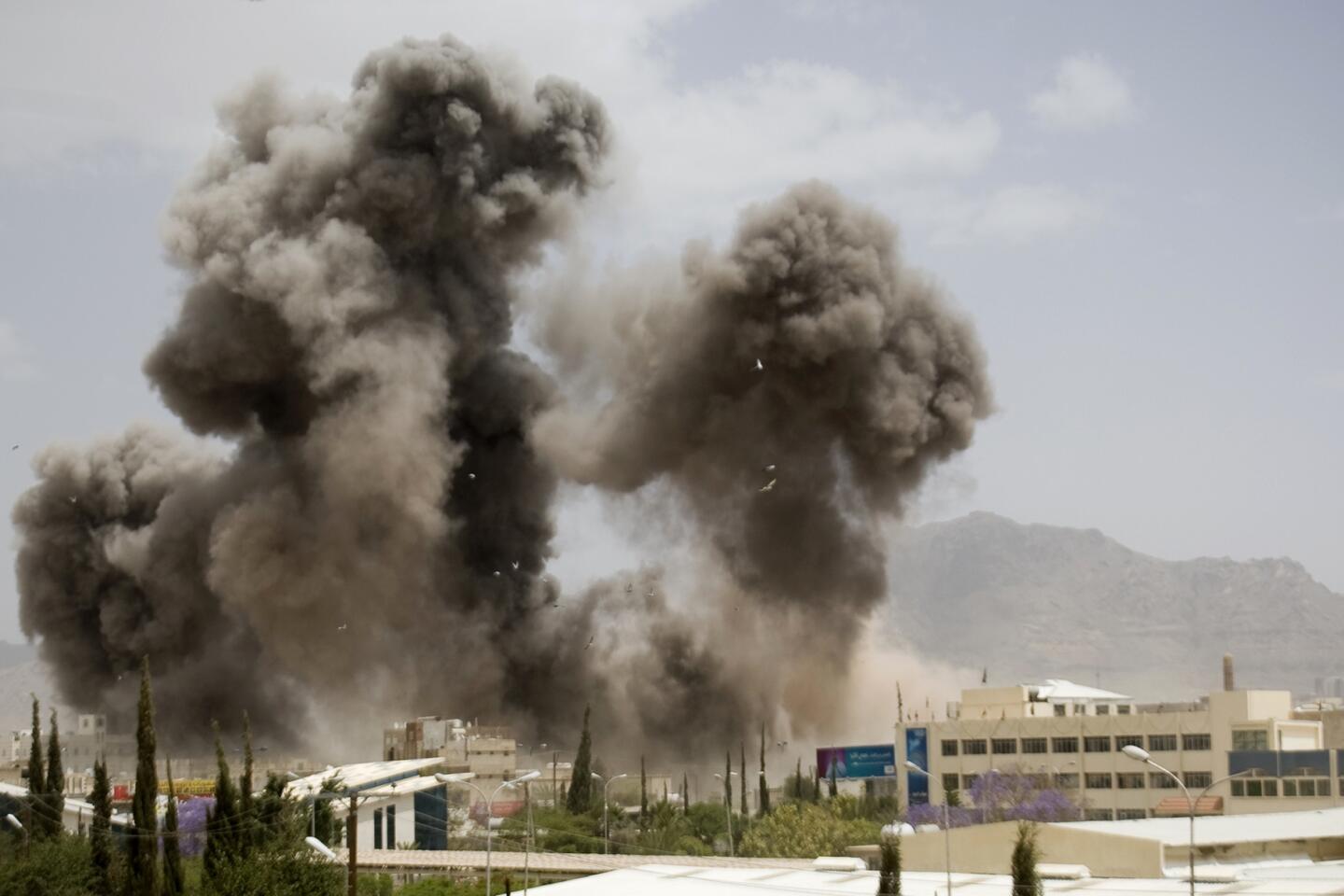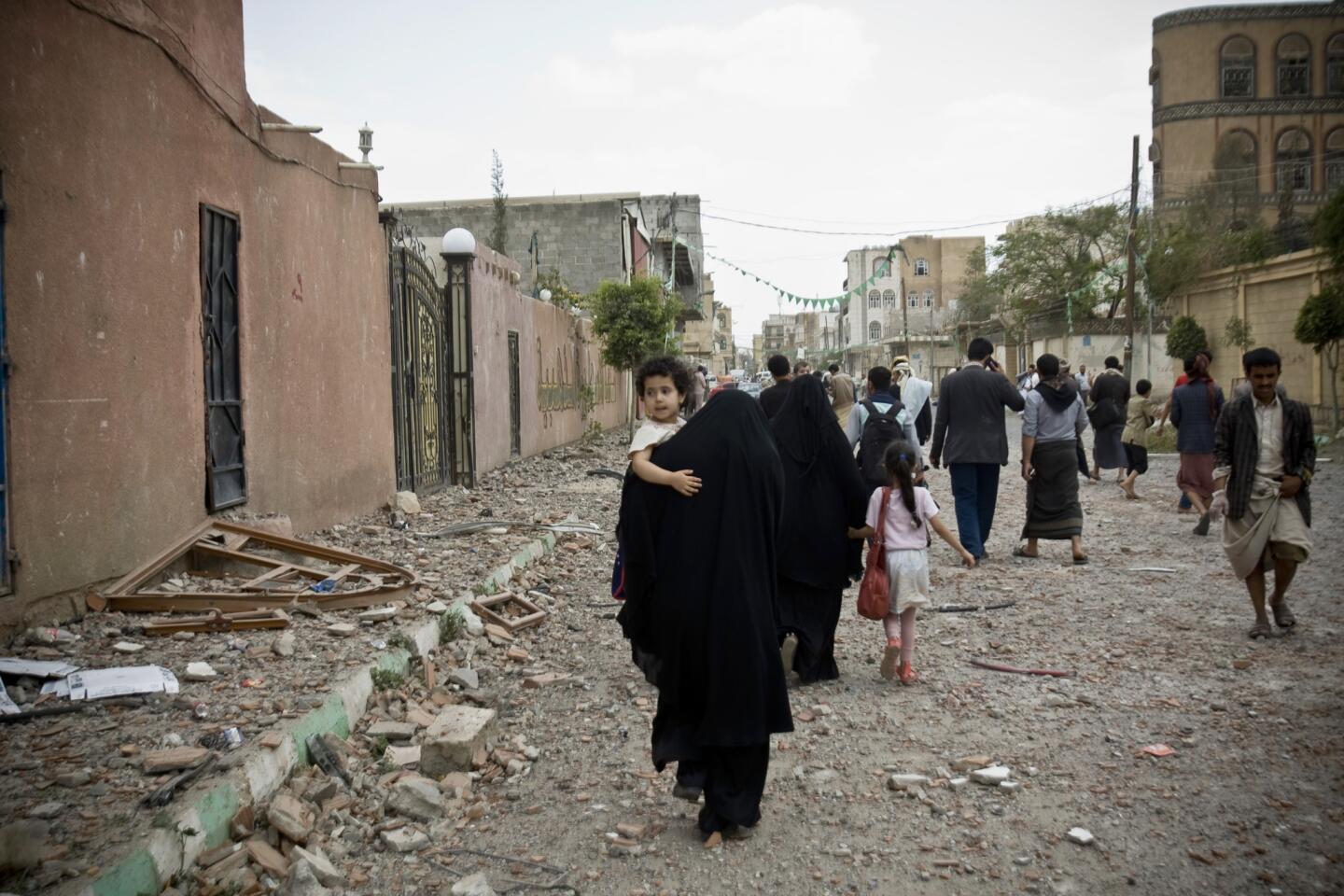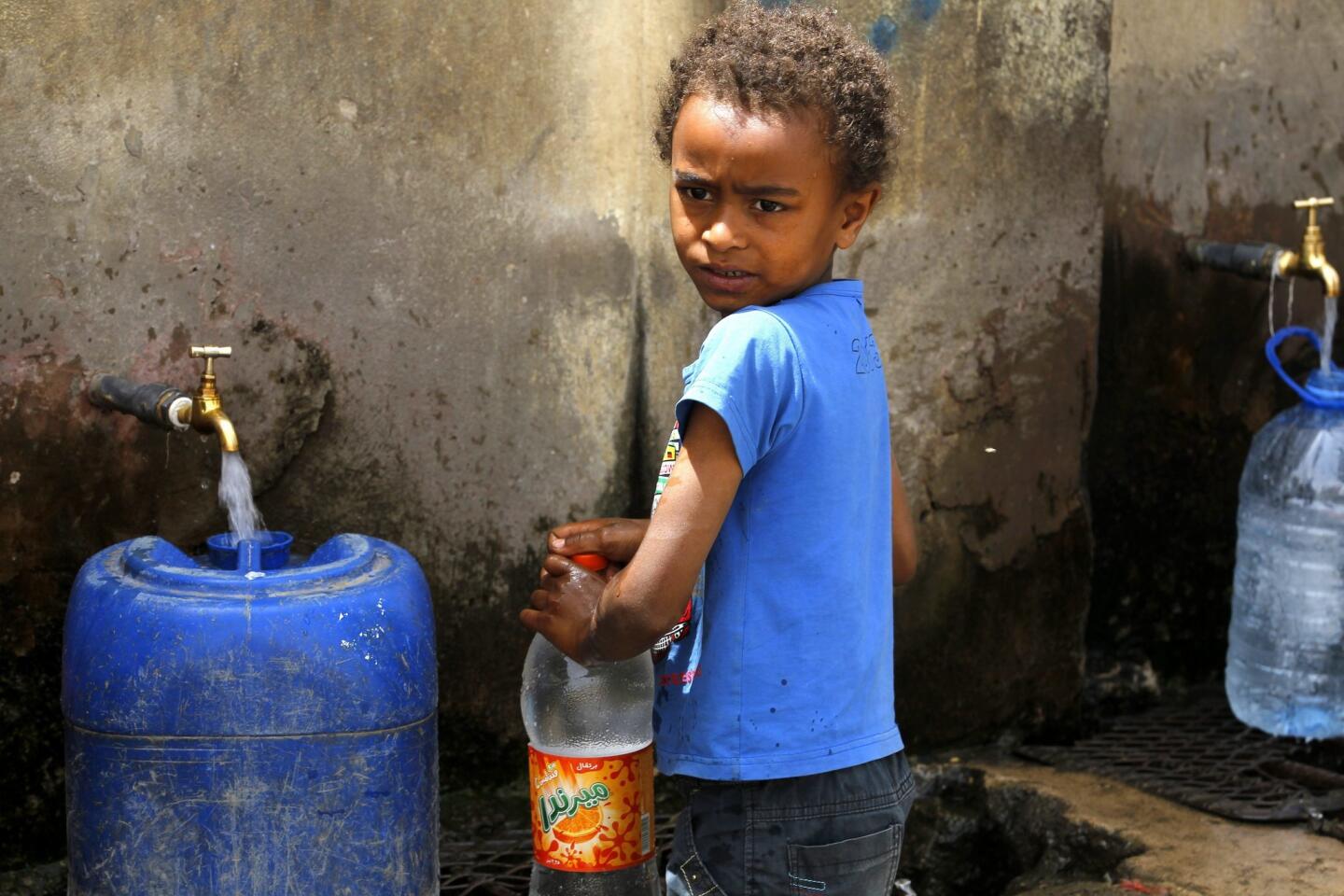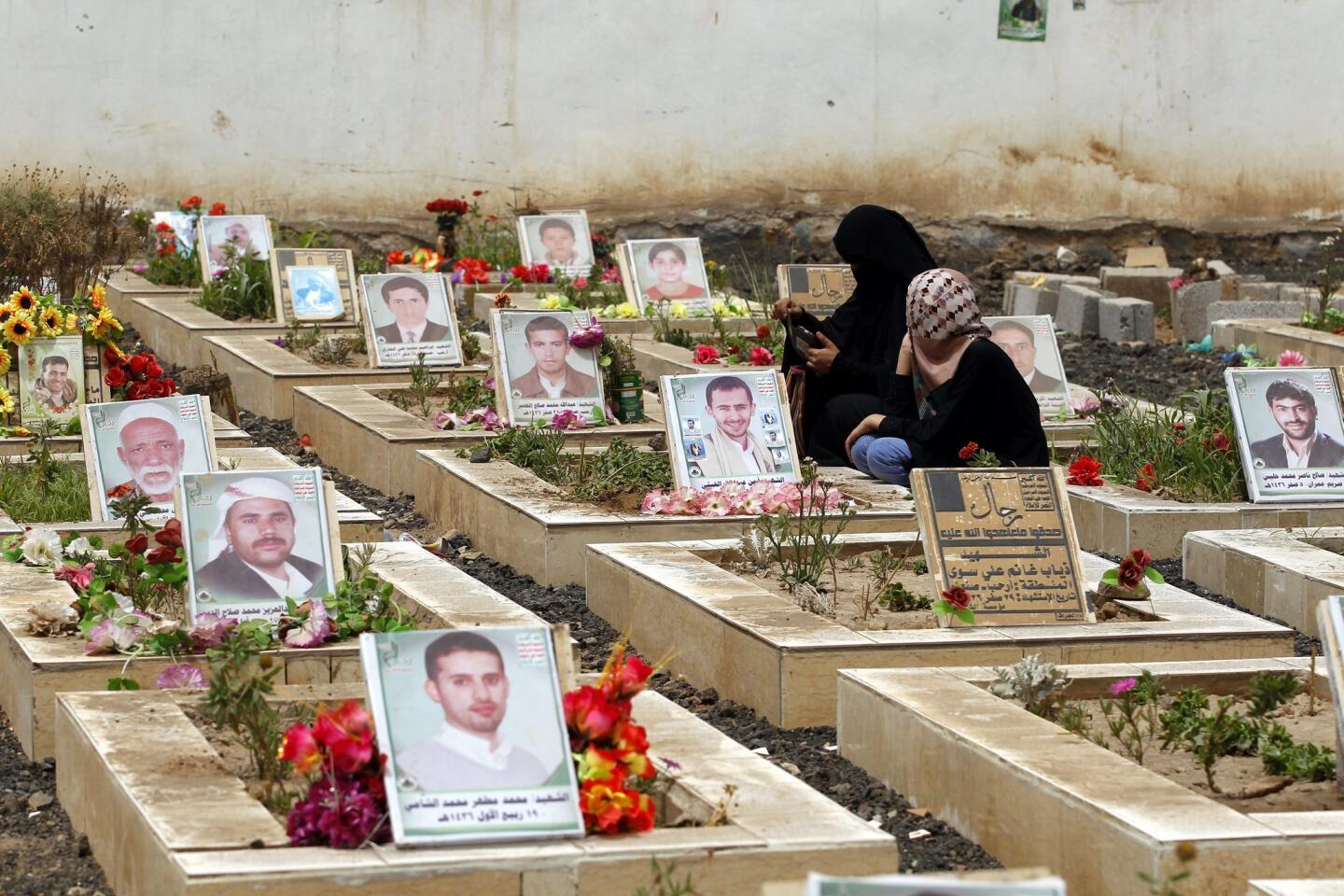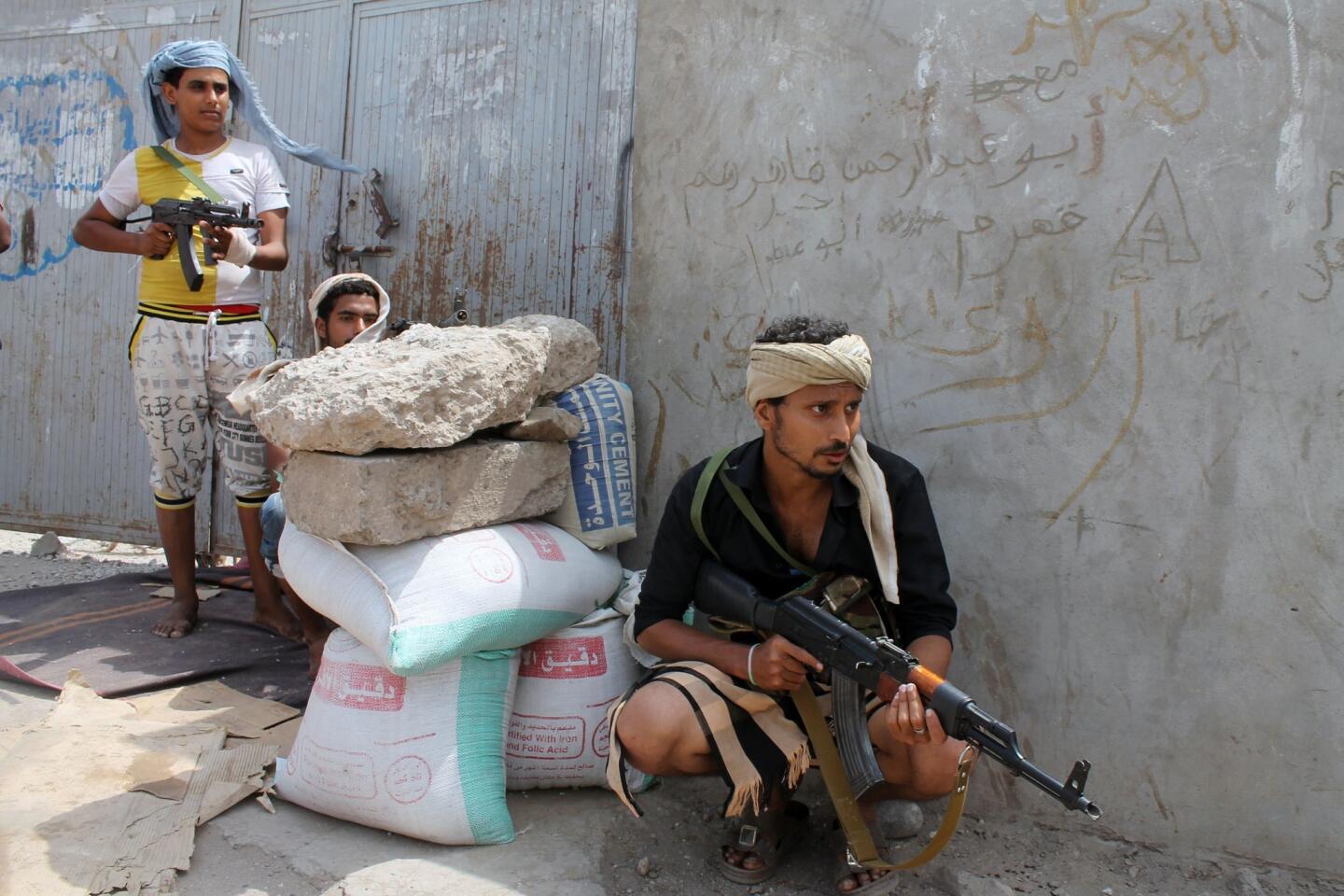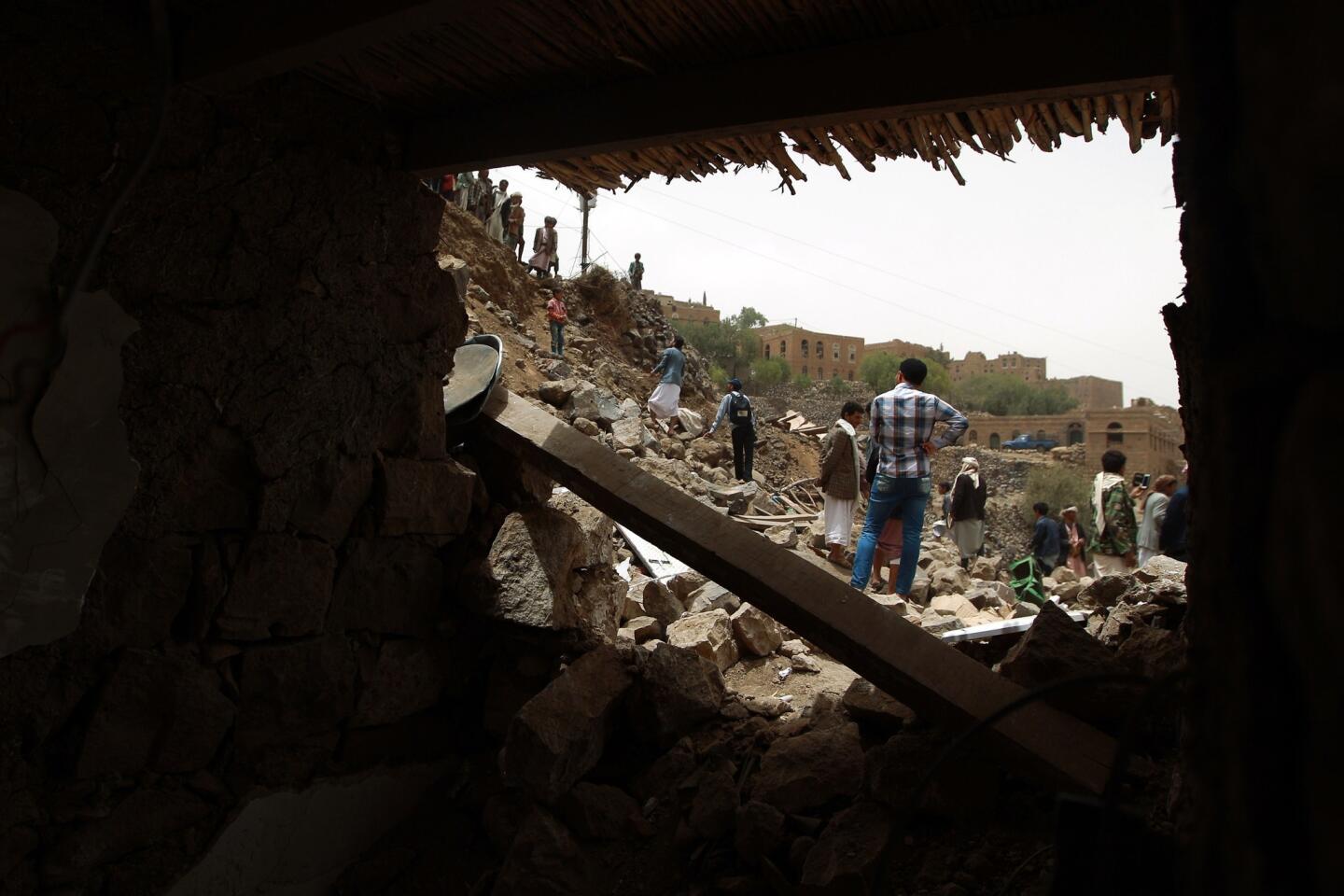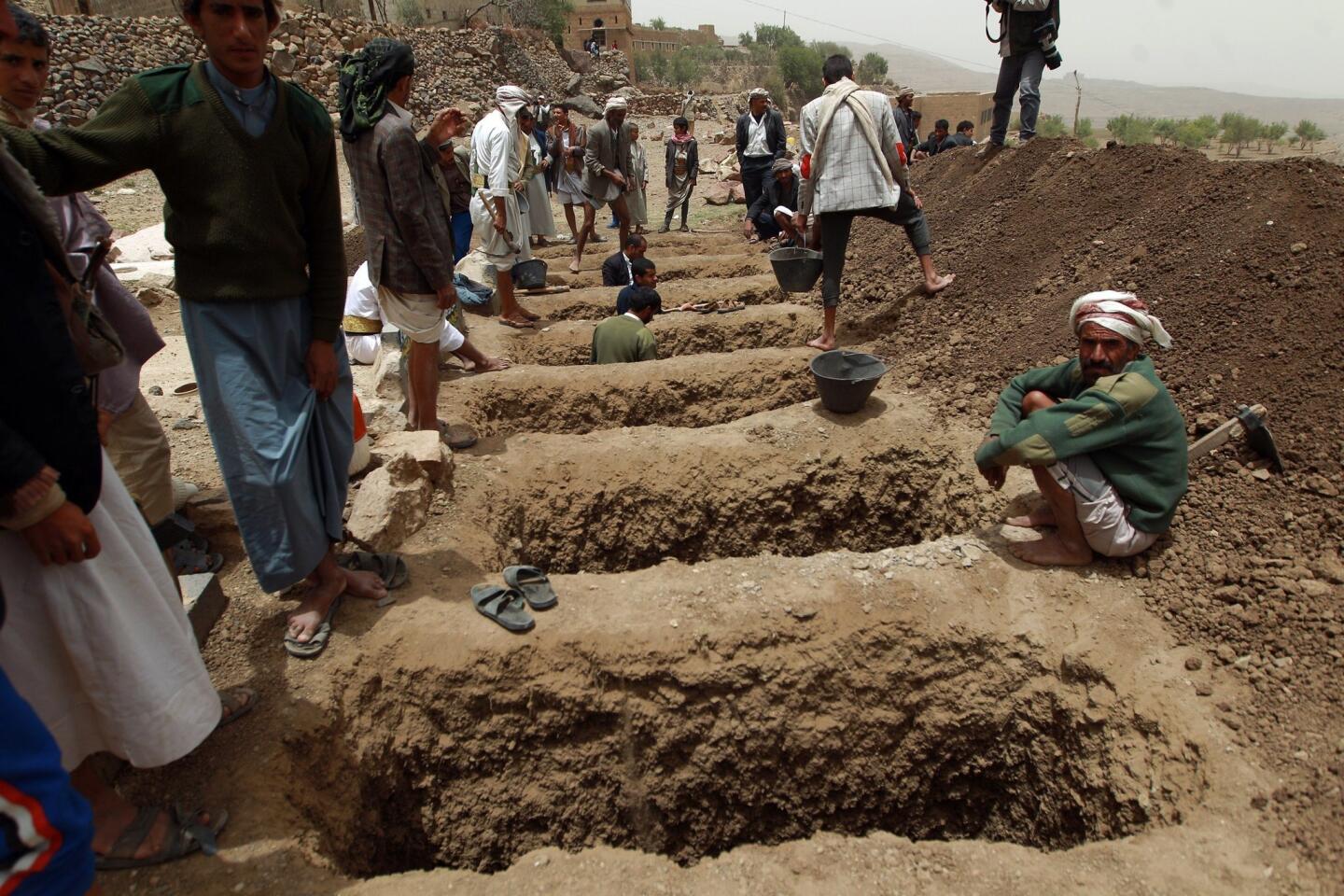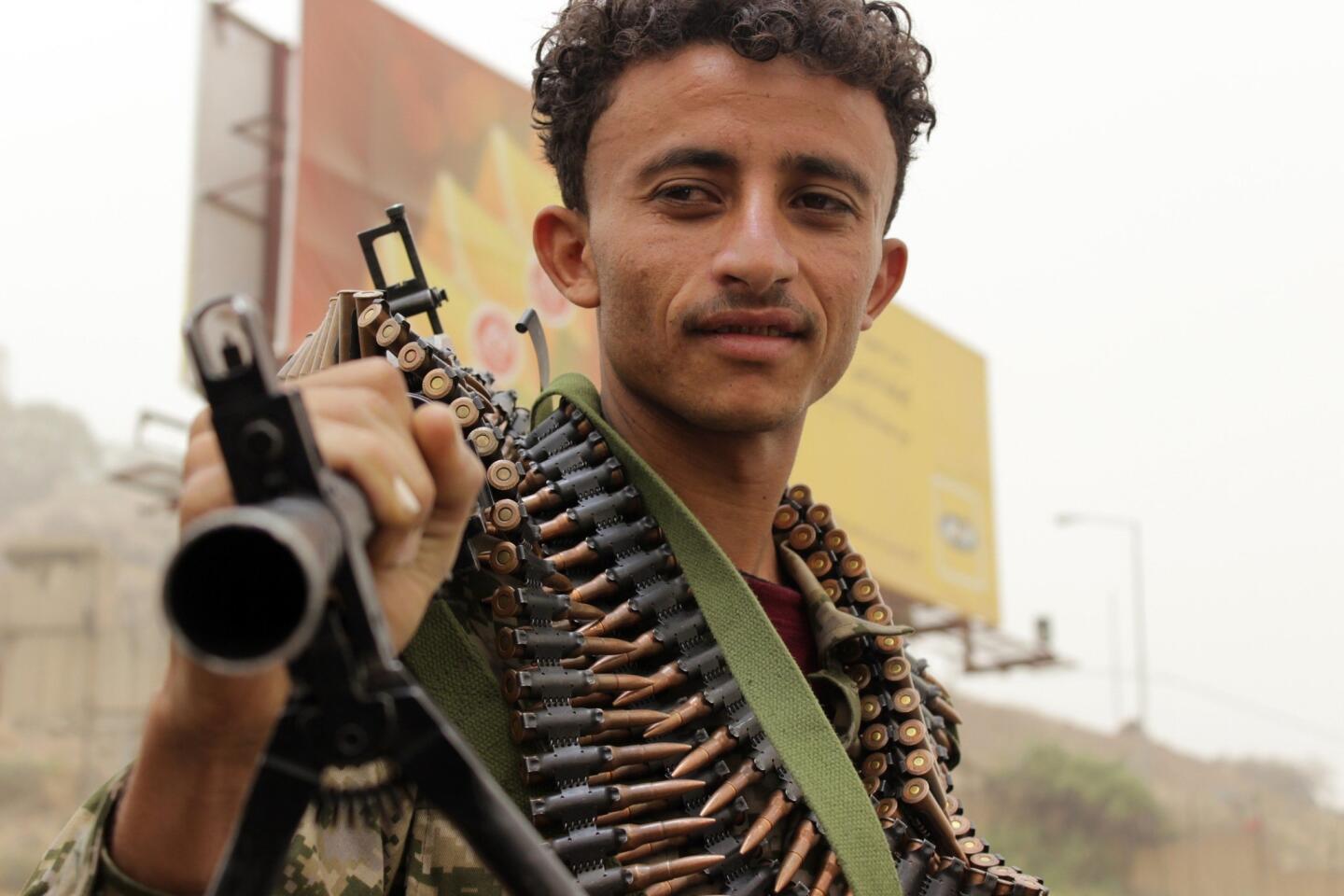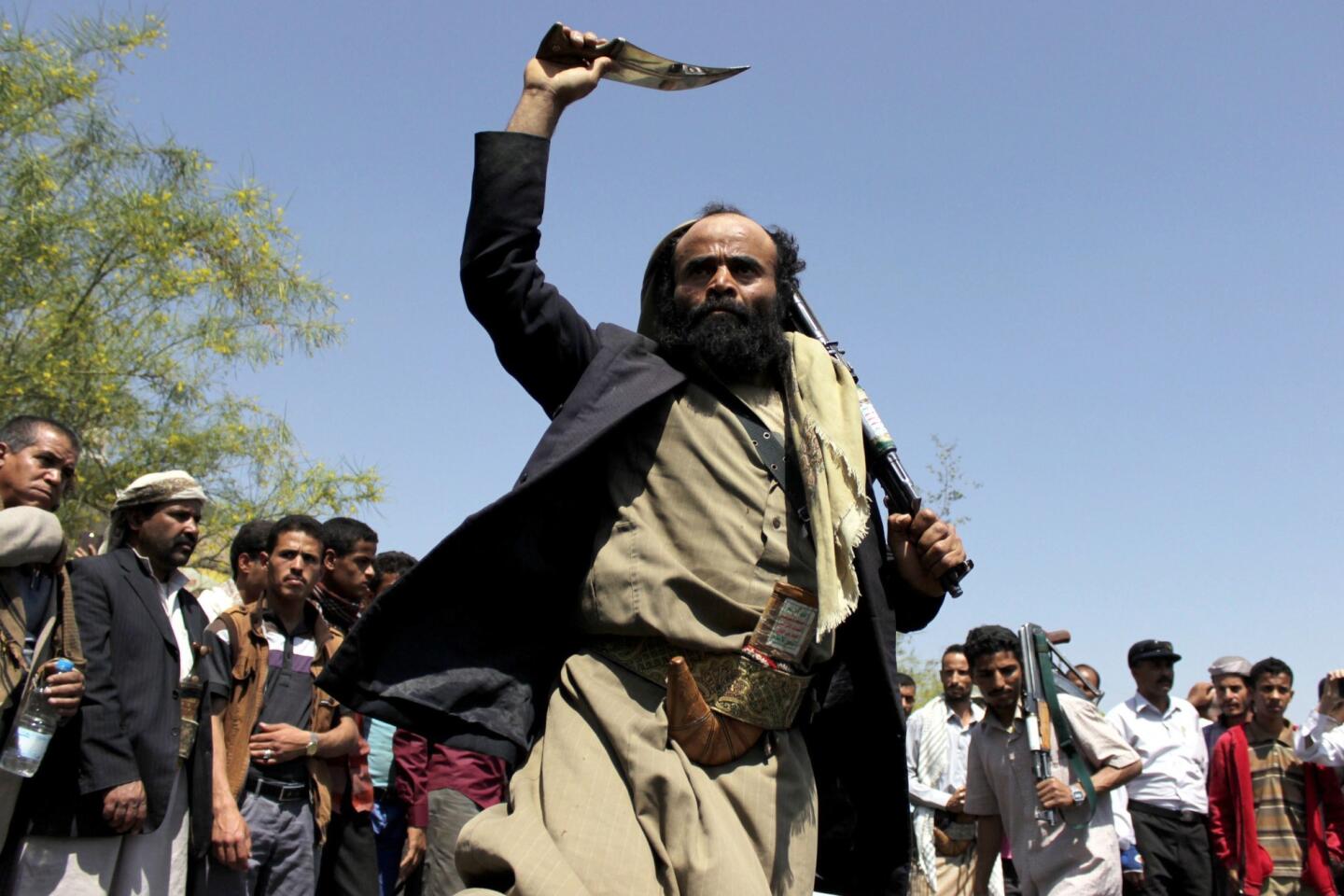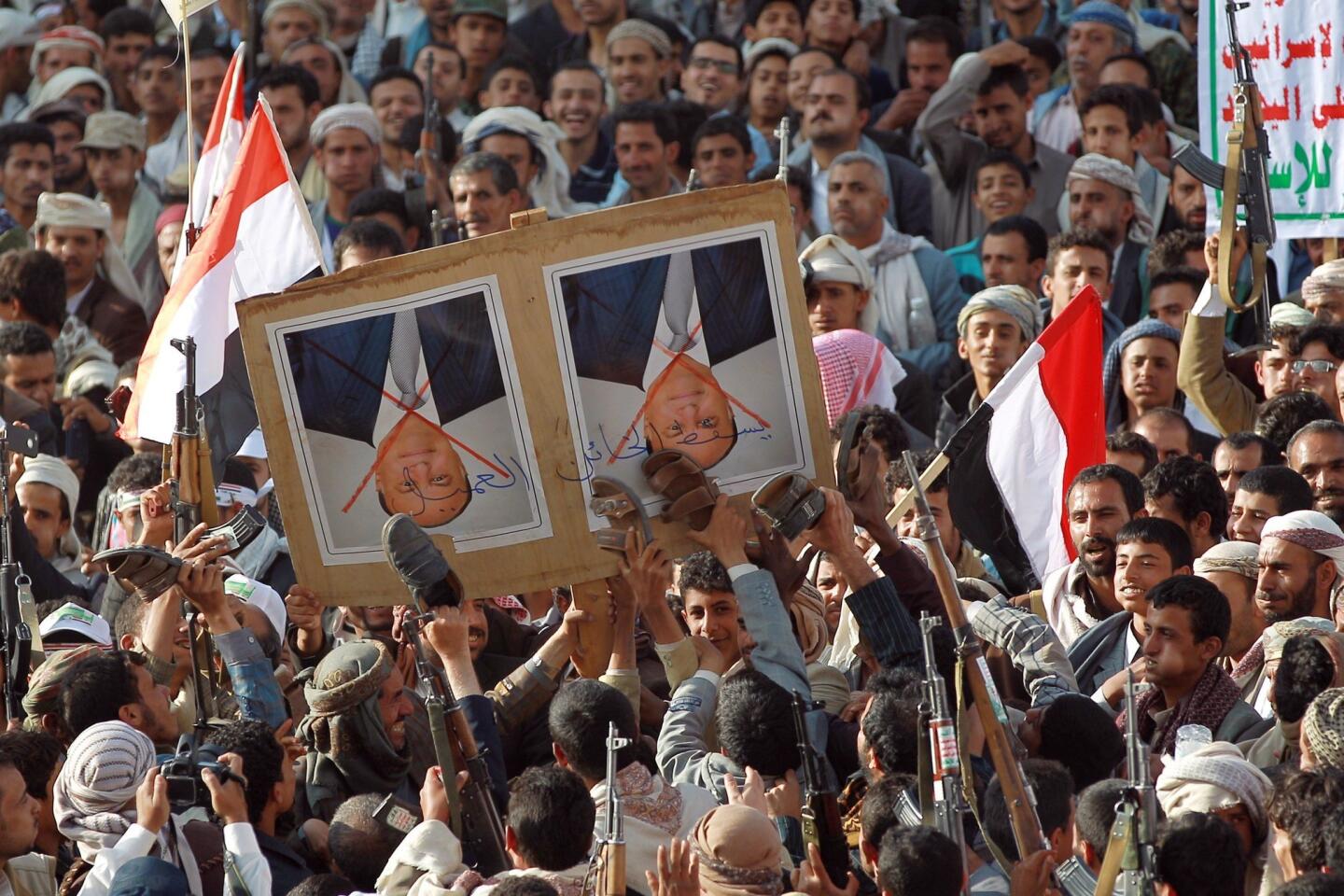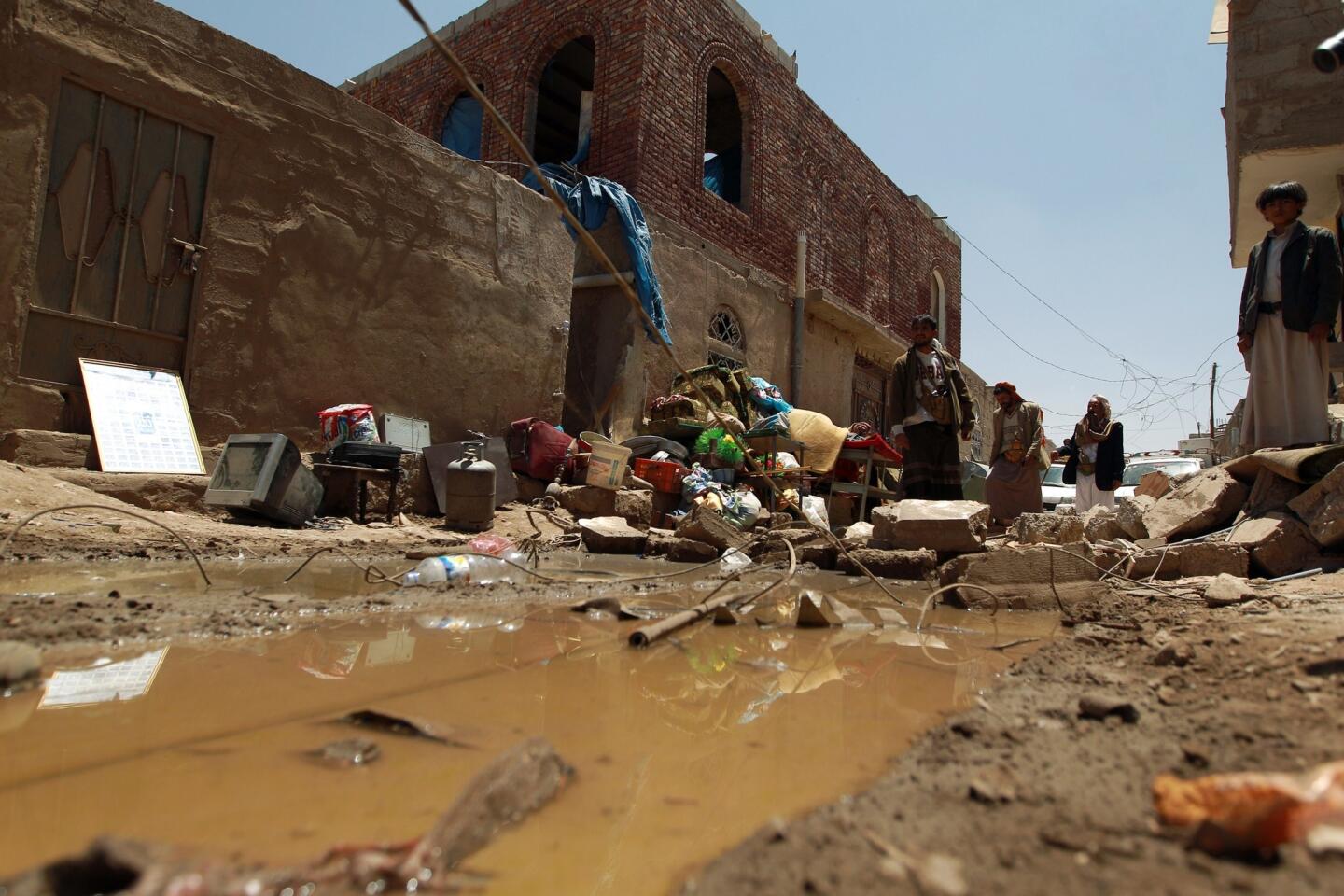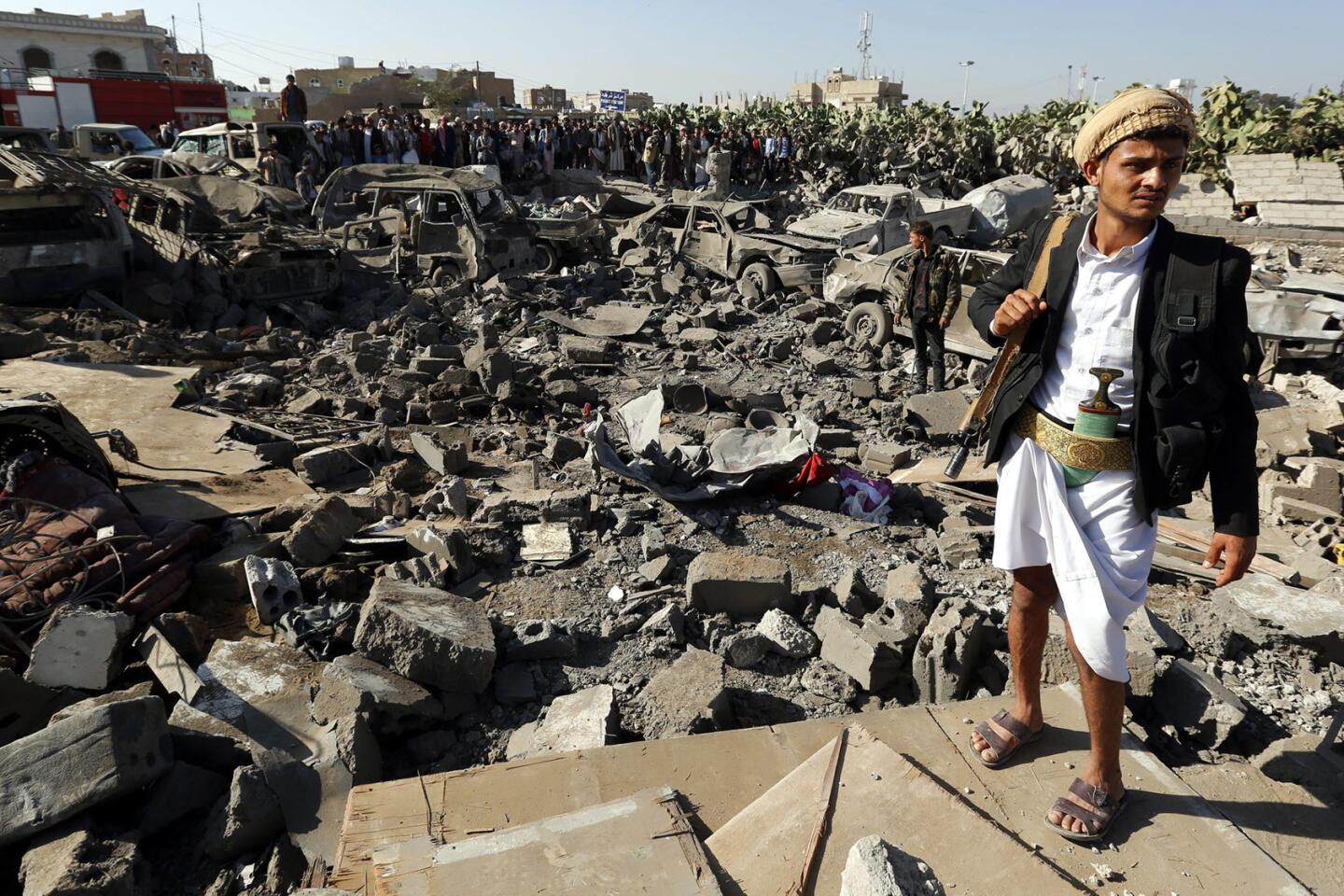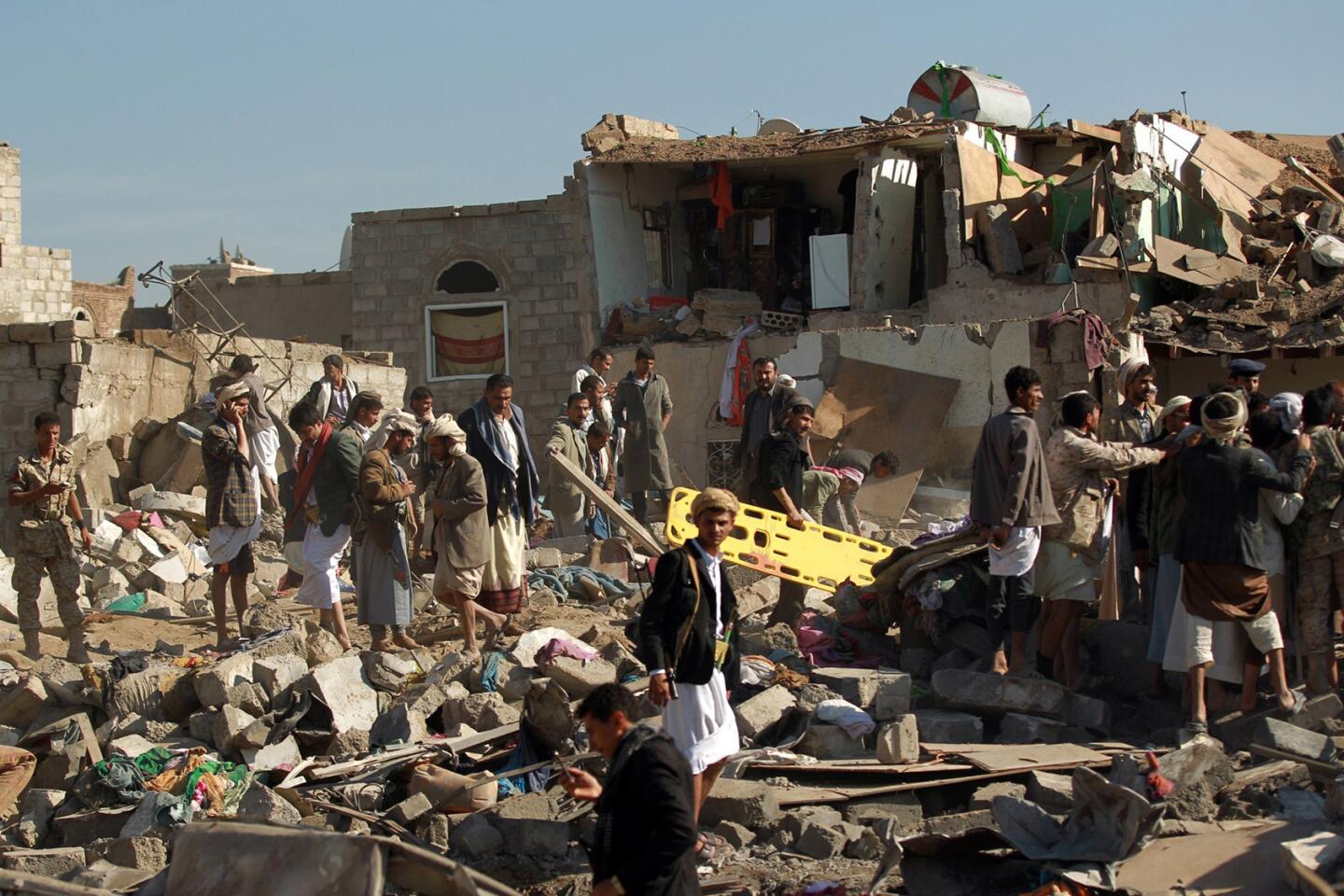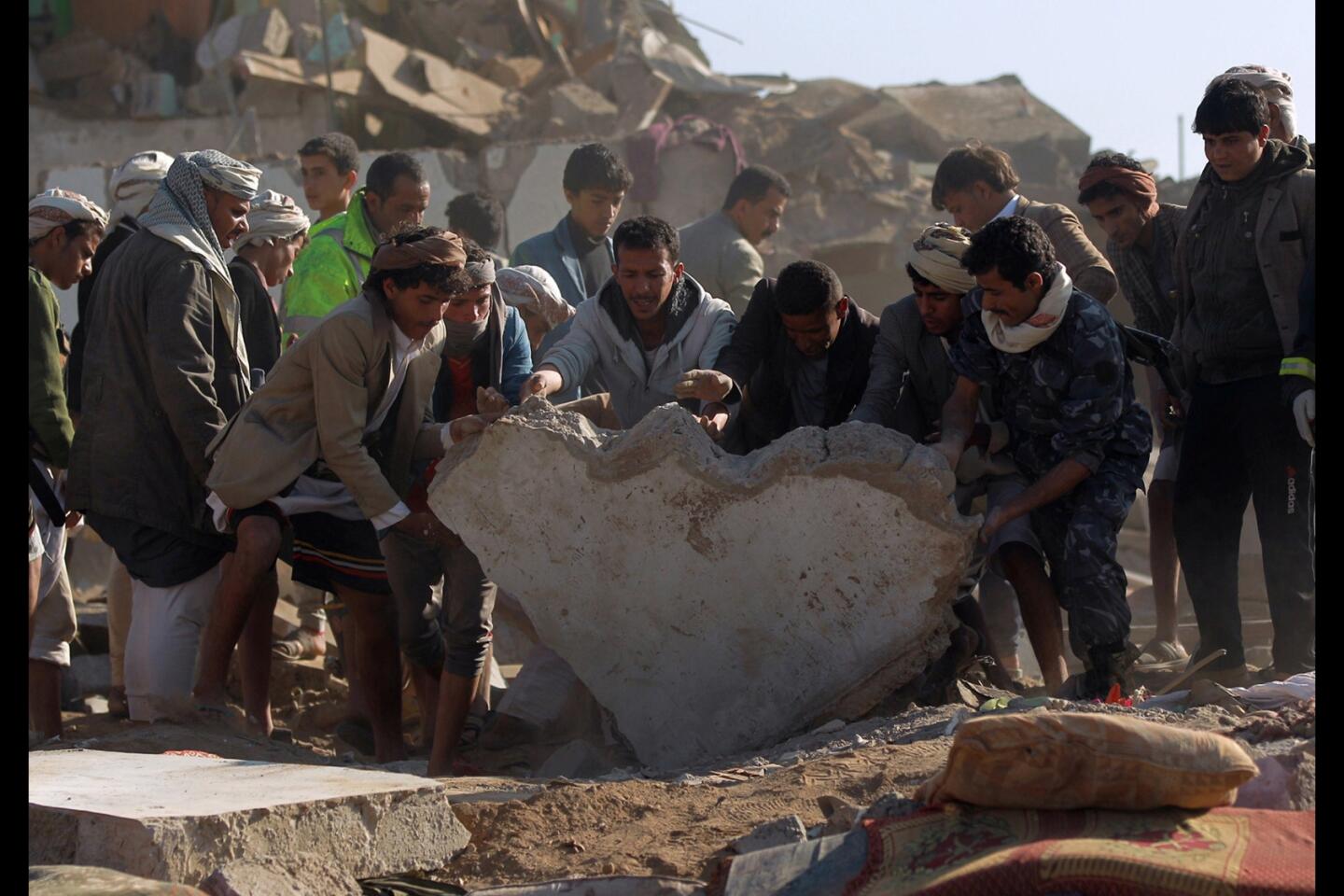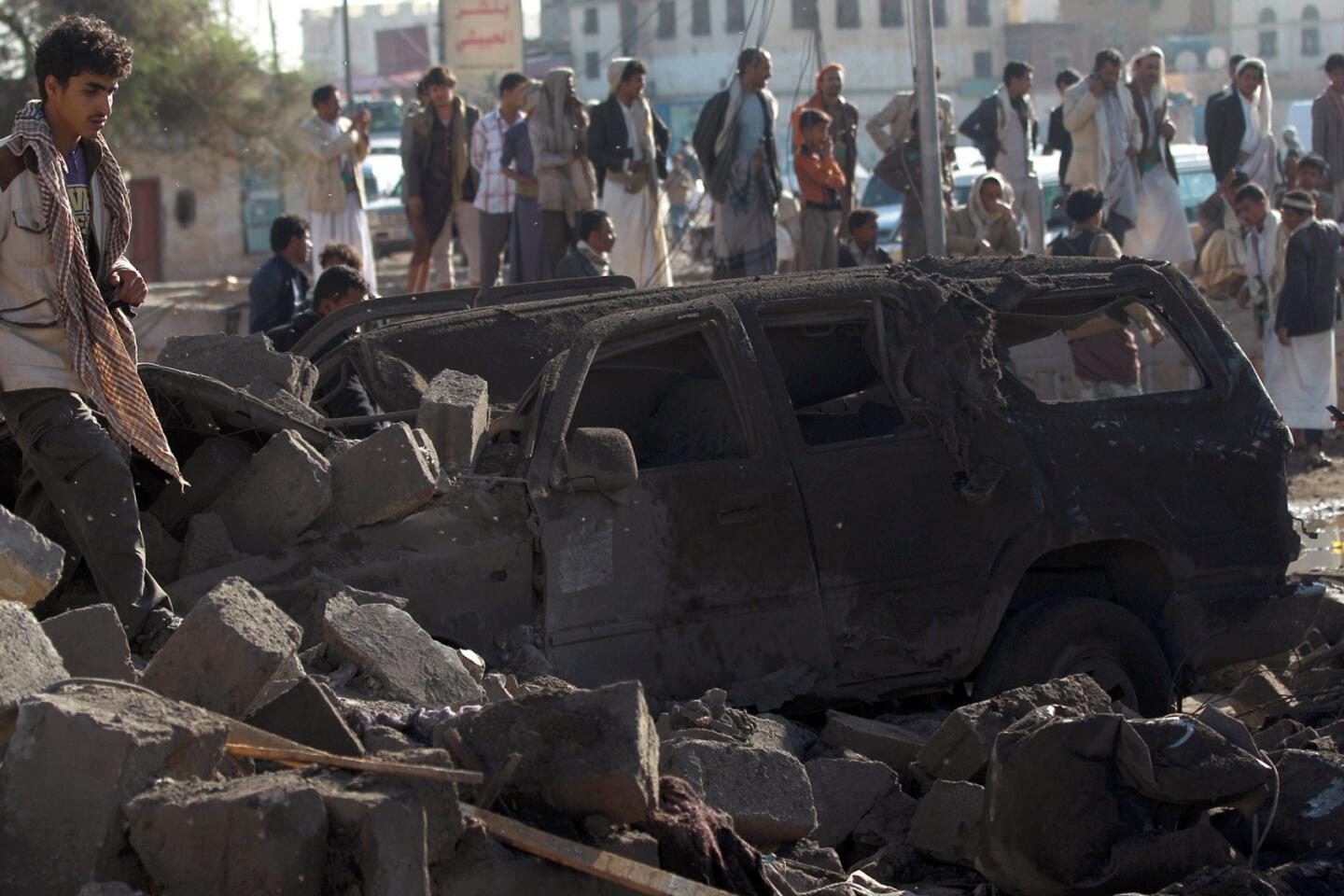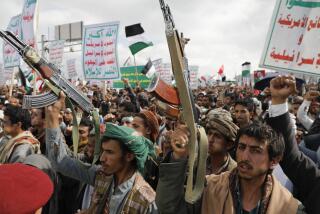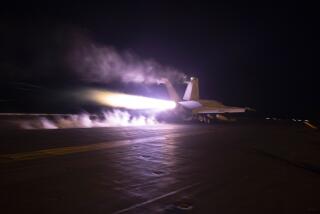With U.S. help, Saudi Arabia steps up airstrikes in Yemen
Saudi Arabia stepped up its airstrikes on military facilities in Yemen on Thursday, targeting missile batteries, aircraft and weapon depots used by Iran-backed militias, according to a top Saudi diplomat.
Saudi officials sent warplanes across the border Wednesday after Houthi militants blitzed through the south of Yemen toward Aden, the country’s economic hub, and threatened to seize the strategic seaport, Saudi Arabia’s ambassador to the United States, Adel al Jubeir, told reporters in Washington.
U.S. and Gulf officials worried that Aden was in danger of falling to the Shiite militants, who were aided by forces loyal to former President Ali Abdullah Saleh, and that the internationally-recognized Yemeni government would lose its last foothold in the country.
“The concern was the situation was so dire, you had to move,” Jubeir said.
The Royal Saudi Air Force has carried out all the airstrikes so far, Jubeir said. Despite reports from Yemen of more than a dozen civilian casualties in the initial attacks, he said the bombing had caused “no collateral damage.”
Jubeir said an array of other Sunni states, including the United Arab Emirates, Qatar, Bahrain and Kuwait, have offered aircraft to assist in the strikes. Morocco, Egypt and Pakistan also have expressed interest in participating, he said.
The United States has been providing overhead surveillance information, intelligence and logistics support, and a new command center has been set up inside Saudi Arabia for U.S. military personnel to work with the Royal Saudi Air Force for planning and launching the attacks.
The strikes are intended to degrade the Shiite Houthis’ arsenal and pressure the militants into entering into a power sharing agreement with Yemen’s sitting president, Abdu Rabu Mansour Hadi, Jubeir said.
Hadi arrived in the Saudi capital of Riyadh on Thursday after fleeing Aden for Oman the day before.
The offensive has put Saudi Arabia further down a path toward open conflict with its regional rival Iran, which has provided training, weapons and advisors to the Houthis.
“It is the Iranians who interfered in Yemen,” Jubeir said. The Saudis don’t want a regional war, he said; “we just want to see that the Houthis are not able to take over” Yemen.
“Iran is playing a destabilizing role in the region,” Jubeir said.
U.S. Secretary of State John F. Kerry told foreign ministers of Gulf Cooperation Countries in a conference call that the United States supported the coalition’s military action against the Houthis.
During the call, Kerry said the U.S. would help with “intelligence sharing, targeting assistance, and advisory and logistical support for strikes against Houthi targets,” State Department spokesman Jeff Rathke said.
Kerry called from Switzerland, where he and other diplomats are trying to negotiate a deal meant to prevent Iran from enriching enough uranium to build a nuclear weapon.
A Gulf official in Washington downplayed the possibility of a ground incursion into Yemen by Saudi forces.
The Gulf countries, including Saudi Arabia, would consider sending a force to secure Aden if Yemen’s government was able to reconstitute itself in the city, the official said, speaking on condition of anonymity to discuss military plans.
But the mission would be limited to protecting the government and not taking new territory.
“Nobody wants to send troops into Yemen,” the official said. “It is like Afghanistan. You are going to be fighting ghosts.”
More to Read
Start your day right
Sign up for Essential California for news, features and recommendations from the L.A. Times and beyond in your inbox six days a week.
You may occasionally receive promotional content from the Los Angeles Times.
